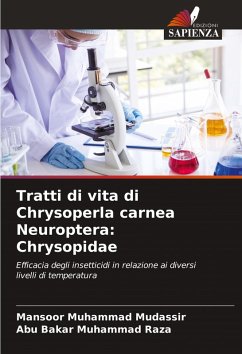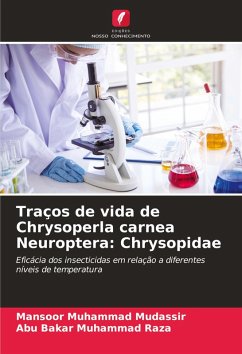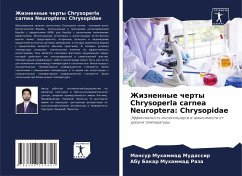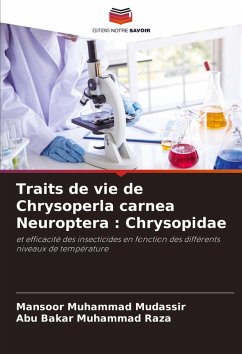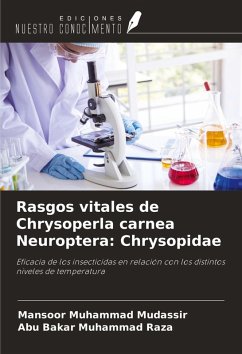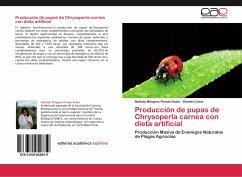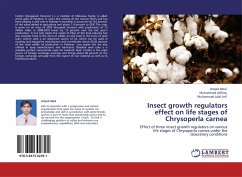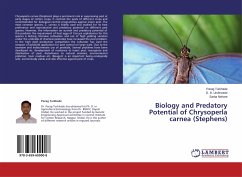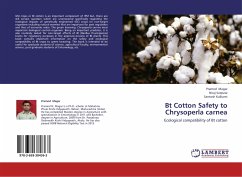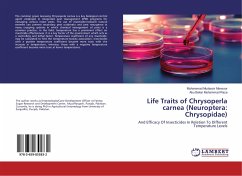
Life Traits of Chrysoperla carnea (Neuroptera: Chrysopidae)
And Efficacy Of Insecticides In Relation To Different Temperature Levels
Versandkostenfrei!
Versandfertig in 6-10 Tagen
36,99 €
inkl. MwSt.

PAYBACK Punkte
18 °P sammeln!
The common green lacewing Chrysoperla carnea is a key biological control agent employed in integrated pest management (IPM) programs for managing various insect pests. The use of insecticide-resistant natural enemies can prevent secondary pest outbreaks and pest resurgence in many cropping systems in which chemical management of pests is a common practice. In the field, temperature has a prominent effect on insecticide effectiveness. It is a key factor of the environment which acts as a controlling and lethal factor. Temperature coefficient of any insecticide may be calculated to find the temp...
The common green lacewing Chrysoperla carnea is a key biological control agent employed in integrated pest management (IPM) programs for managing various insect pests. The use of insecticide-resistant natural enemies can prevent secondary pest outbreaks and pest resurgence in many cropping systems in which chemical management of pests is a common practice. In the field, temperature has a prominent effect on insecticide effectiveness. It is a key factor of the environment which acts as a controlling and lethal factor. Temperature coefficient of any insecticide may be calculated to find the temperature-toxicity association. Insecticides with a positive temperature coefficient become more toxic with the increase in temperature, whereas, those with a negative temperature coefficient become more toxic at lower temperatures.




